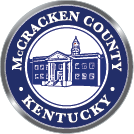Involuntary Drug & Alcohol Treatment
Casey’s law is the common name given to involuntary treatment for alcohol and drug abuse in Kentucky. Casey’s Law provides a means of intervention with someone who is unable to recognize his or her needs for treatment due to their addiction. Casey’s Law allows parents, relatives, and/or friends to petition the court for treatment on behalf of the person who is abusing alcohol and/or drugs.
The treatment options available under the law can vary depending on circumstances of each individual case. The person seeking the involuntary treatment is obligated to pay all costs incurred in the process as well as all cost of treatment and must sign a guaranty of payment. Costs incurred can be extensive, something the person seeking involuntary treatment should be aware of before signing the guaranty of payment.
Under Casey’s law, a person suffering from drug or alcohol abuse will not be ordered to undergo involuntary treatment unless that person presents an imminent threat of danger to their self, family or others as a result of alcohol or drug abuse, or there exists a substantial likelihood of such a threat of danger in the near future. Additionally, it must also be determined that the person can reasonably benefit from the treatment.
If you need assistance during this process, please contact the McCracken County Attorney’s Office at 270-444-4709.
Process to Obtain Treatment
1. Complete Petition AOC Form 700A and have petitioner’s signature notarized. Petition can be filled for a 72-hour hold, 60 day treatment or 360 day treatment. Petition can be obtained at the McCracken County Clerk’s Office
2. File Petition with the McCracken County District Court Clerk at the McCracken County Courthouse, 301 South 6th Street, Paducah, Kentucky.
3. When filing Petition with District Court Clerk, you must also give the Clerk a completed AOC Form 703A, Certification of Qualified Health Professional, including the names of a physician and one Qualified Health Professionals as defined in KRS 222. A Qualified Health Professional can include a Mental Health Professional, an Alcohol and Drug Counselor certified under KRS 309 or a Physician.
4. District Court will give Petitioner (Person filing the petition) a copy of Petition, will mail a copy to Respondent and have the Sheriff serve the Respondent. After the Court reviews the allegations in the petition, the Court will determine whether there is probable cause. If probable cause is established, the Court will order the Respondent to be evaluated by the two named Qualified Health Professionals and set the matter for a hearing within fourteen (14) days.
5. Respondent will go to be examined by the Physician and the Qualified Health Professional petitioner identified to District Court Clerk at least 24 hours prior to hearing date.
6. The Physician and the Qualified Health Professional will either file the report with District Court Clerk or give the report to Petitioner to file with District Court Clerk at least 24 hours prior to the hearing date.
7. After filing the petition but before the hearing date, Petitioner should contact treatment facilities to arrange for treatment as prescribed by the Qualified Health Professionals and requested in the petition.
8. At the final hearing, the County Attorney will submit the reports to the Court and Court will decide whether the Respondent presents an imminent threat of danger as a result of alcohol/drug abuse and if the Respondent can reasonably benefit from treatment. If Court finds that is true for the Respondent, then the Court will order treatment as prescribed by the Qualified Health Care Professionals.
9. The Petitioner will be responsible for obtaining treatment services and transporting the Respondent to the treatment facility.










